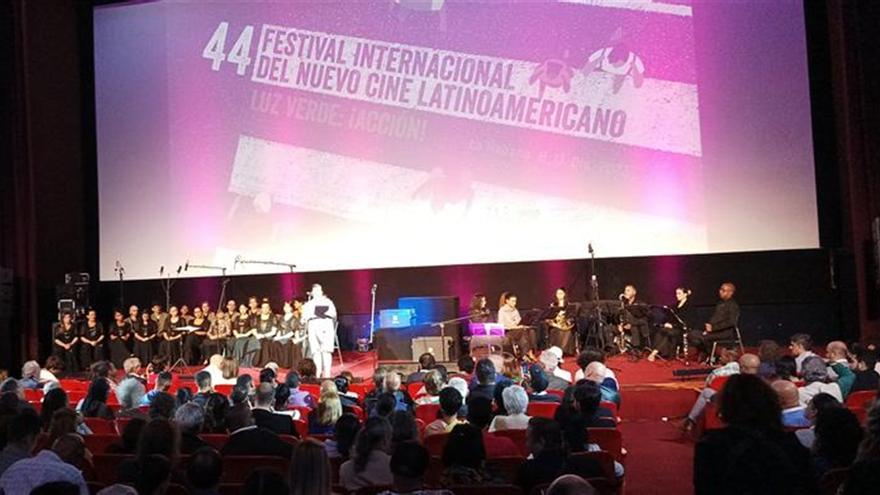
![]() EFE (via 14ymedio), Havana, 17 December 2023 — The Mexican film Tótem, by Lila Avilés, was the big winner at the awards gala of the International Festival of New Latin American Cinema in Havana after obtaining three awards this Friday.
EFE (via 14ymedio), Havana, 17 December 2023 — The Mexican film Tótem, by Lila Avilés, was the big winner at the awards gala of the International Festival of New Latin American Cinema in Havana after obtaining three awards this Friday.
The Mexican film won the Grand Coral for Best Screenplay, Best Fiction Feature Film and Best Artistic Direction on the awards night of the 44th edition of the festival. The Argentine Los delincuentes, [The Delinquents], by Rodrigo Moreno, also won three awards: Best Direction, Best Photography and Best Editing.
The award ceremony, held at the Charles Chaplin cinema, was the culmination of the festival, which, since December 8, has screened hundreds of films in the Cuban capital and officially ends on Sunday.
Among the recognitions was the victory of El mundo de Nelsito [Nelsito’s World] in the category of best poster, by the Cuban Vladimir Pérez. Also, in the second edition of the Arrecife award, for the work that best captures the reality of the LGBTIQ+ community, the award went to the Franco-Colombian Transfariana, by Joris Lachaise.
With the slogan “Lights, Camera, Action!” the event had 199 films selected for competition from a total of 19 countries – the most represented were those of Mexico, Argentina, Brazil and Chile – in categories such as fiction shorts, debuts, documentaries and animated works.
There were also tributes made to the Cuban filmmaker Tomás Gutiérrez Alea, co-director of Fresa y chocolate [Strawberry and Chocolate], the only film on the Island nominated for an Oscar, which celebrated the 30th anniversary of its premiere in 2023; the Spanish-Mexican director Luis Buñuel; the French actor and director Max Linder and the Cuban cartoonist Juan Padrón.
With the slogan “Lights, Camera, Action!” the event featured 199 films selected for competition from a total of 19 countries
Within the framework of the festival, the Center of the Cuban Film Poster was inaugurated, a place that exhibits part of the collection inscribed in May in the list of Memory of the World of the United Nations Educational, Scientific and Cultural Organization (UNESCO).
This edition of the festival was under the shadow of the clash between the film sector and the Cuban Government.
The discomfort in the guild became evident after the censorship of the documentary La Habana de Fito [Fito’s Havana], a work directed by Juan Pin Vilar – which recalls the anecdotes in the Cuban capital of the Argentine artist Fito Páez – at the beginning of the year, and the broadcast in June of a non-definitive version of that film on state television, without the authorization of its director.
These two events marked the appearance this summer of the independent Assembly of Cuban Filmmakers (ACC), which denounced the censorship of two of its films at the festival.
During the festival, at least two filmmakers complained about the situation of the guild and the attitude of the cultural authorities.
After the screening of Landrián – a documentary about the work of Nicolás Guillén Landrián, one of the pioneers of Cuban cinema, who ended up in exile – its director, Ernesto Daranas, said that censorship is exercised in Cuba “still today.”
Similarly, the director Orlando Mora Cabrera, in the presentation of his short, Brujo amor [Sorcerous Love], said the Havana festival “should be a more plural, more inclusive and more fair space. When it is censored, not only is the artist excluded but the voice of the people is also silenced.”
Translated by Regina Anavy
____________
COLLABORATE WITH OUR WORK: The 14ymedio team is committed to practicing serious journalism that reflects Cuba’s reality in all its depth. Thank you for joining us on this long journey. We invite you to continue supporting us by becoming a member of 14ymedio now. Together we can continue transforming journalism in Cuba.
